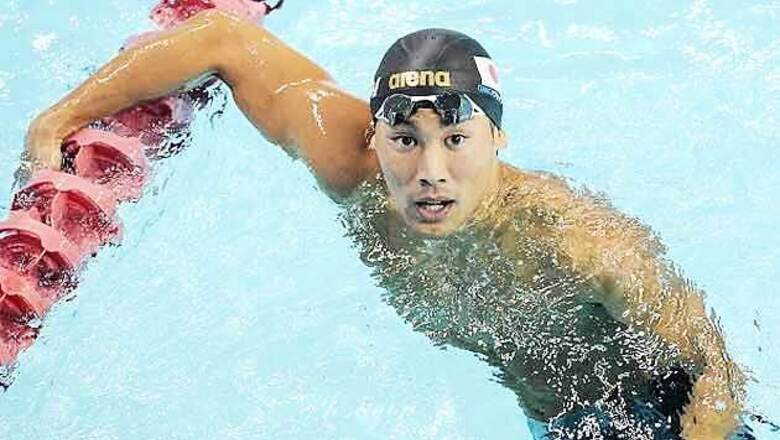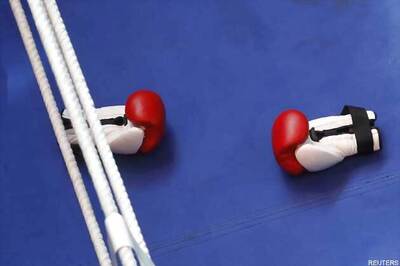
views
Swimmer Naoya Tomita brought shame to Japan's Asian Games delegation after he was caught stealing a camera from a local photojournalist, while football authorities said on Saturday they were looking into reports of matchfixing at the Asiad.
The Asian Football Confederation said in a statement it was working closely with the Olympic Council of Asia (OCA) and Sportradar, which monitors the world's betting industry, identifying fraud and unusual patterns of behaviour.
"The AFC is determined to eradicate matchfixing in Asia and we will ensure no stone is left unturned in the pursuit of our goal," said soccer's governing body in the region.
The men's football tournament continues on Sunday with the quarter-finals, while the women will play in the semis the following day.
There were 24 gold medals awarded on Saturday in South Korea, where 9,500 athletes from 45 countries have gathered to compete in 36 sports.
There would be no more popular gold medal for the host country than baseball, and South Korea set up a mouthwatering final against Taiwan after beating China 7-2 at Munhak Baseball Stadium on Saturday.
In the earlier semi-final, Taiwan, referred to as 'Chinese Taipei' at the Games, exploded for seven runs in the second inning on the way to a 10-4 rout of Japan.
"We managed to do well in the first inning, but gave Chinese Taipei a large lead in the second inning," said Japanese head coach Hirotami Kojima.
"I think that was the main reason for our defeat today."
There was more disappointment for Japan with the news that swimmer Tomita, who won gold in the 200m breaststroke four years ago in Guangzhou but finished out of the medals in Incheon, had admitted stealing an 8 million won ($7,600) camera.
"He has been expelled from the team effective immediately," said the head of the Japanese delegation, Tsuyoshi Aoki.
"He will have to find his own way back to Japan. Further consequences of the act will be decided upon in Japan."
"He admitted it right away," South Korean police told Reuters. "The case will be dealt with by the prosecutor's office next week."
The swimming events wrapped up the previous night with Japan's powerful men's team winning eight out of a possible 19 events.
DOPING DANGERS
Japan are determined to displace South Korea as runners-up to China in the medals table for the first time since 1994, and trail the hosts by three gold medals after eight days of competition.
With China running away at the top with 96 golds, South Korea are second with 35 and Japan on 32 in third place.
The athletics competition finally got underway on Saturday, with Dilshod Nazarov of Tajikistan winning the men's hammer and the women's shot put going to 2012 Olympic bronze medallist Gong Lijiao of China.
Ethiopia-born Alia Saeed Mohammed won gold for the United Arab Emirates in the women's 10,000m, while Qatar's Mohamad Al-Garni, born in Morocco, took the men's 5,000m title.
Bahrain got their first gold medal of the Games when Ruth Jebet won the women's 3,000m steeplechase.
Jebet was born in Kenya.
The title of the fastest man in Asia will be decided on Sunday with the 100 meters final at the Asiad Main Stadium.
That crown once belonged to Mani Jegathesan, who won the 100m and 200m titles at the 1966 Bangkok Games.
Almost 50 years later, Dr. Jegathesan is chairman of the OCA's medical commission and one of the top anti-doping officials in Asia.
Jegathesan told reporters on Saturday that 1,600 athletes would be tested in Incheon, with more than 1,920 samples collected over the Games period.
The two positive tests of the Games so far -- a Cambodian soft tennis player and a Tajiki footballer -- had likely come after the athletes unintentionally took banned substances through supplements or medications.
However, anti-doping authorities had to make no distinction between the ill-informed athlete and the hardcore drugs cheat when it came to reporting positive tests, he warned.
"We are not interested in your intention," he added. "Once this substance is found in your body, you have to pay for it."




















Comments
0 comment